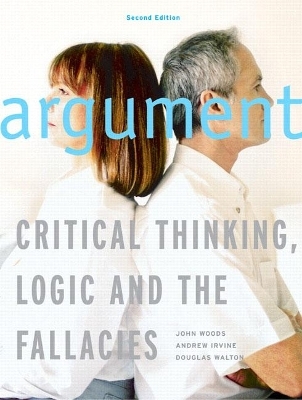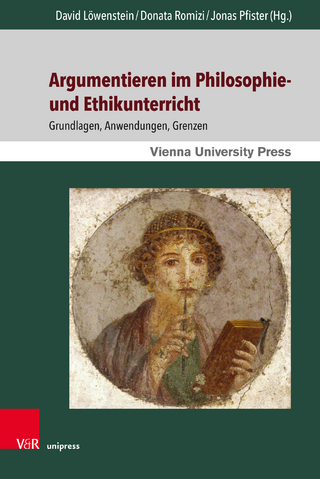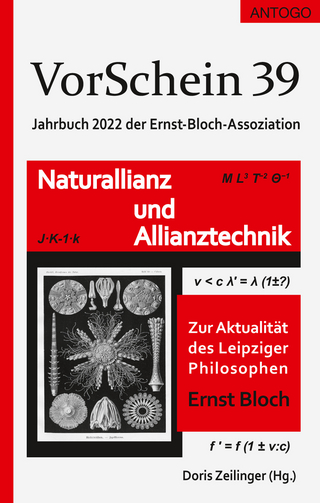
Argument
Pearson (Verlag)
978-0-13-039938-0 (ISBN)
- Keine Verlagsinformationen verfügbar
- Artikel merken
The most unique feature of the text is its solid foundation in logic. The discussion of fallacies is integrated with logic in a way not seen in other texts. This treatment provides students with tools to evaluate their own and other peoples thinking logically as well as analyze and assess an argument.
(NOTE: Each chapter concludes with a Summary.)
Introduction.
I. ARGUMENTS.
1. The Quarrel.
Arguments, Fallacies, and Logic.
The Quarrel.
The Ad Baculum.
The Ad Hominem.
2. The Debate.
The Debate.
Mill's Model of Debate.
A Critique of Mill's Model.
The Ad Populum: Boosterism.
The Ad Populum: Popularity.
The Ad Verecundiam.
Appeals to Misery and other Emotive Fallacies.
3. Dialectic.
Aristotle's Basic Rules of Dialectic.
Eight Revised Rules of Dialectic.
The Ad Ignorantiam.
The Fallacy of Complex Question.
II. LOGIC.
4. Elementary Logic.
Entailment.
Conjunction, Disjunction, and Negation.
Conditionals and Biconditionals.
Testing Arguments for Validity.
The Truth-Table Test for Validity.
Fallacies of Relevance.
5. Formal and Informal Logic.
Logical Form.
Formal Logic.
Begging the Question.
Equivocation and Amphiboly.
The Paradox of the Liar.
6. Formal Deductive Systems.
Formal Systems.
System P.
Working in System P.
Evaluating System P.
7. Nonclassical Propositional Logics.
System RP.
Evaluating System RP.
Modal Logics.
Epistemic and Deontic Logics.
Multi-valued Logics.
8. Term Logic.
Aristotle's Categorical Propositions.
Immediate Inference.
The Syllogism.
9. Predicate Logic.
Motivating Predicate Logic.
Extending System P.
Working in System PL.
Extending System PL.
10. Inductive Logic and Scientific Reasoning.
Induction: Narrow and Wide2. Inductive Logic.
The Elements of Probability Theory.
Hasty Generalization and Related Fallacies.
A Causal Fallacy.
Causal Reasoning.
III. APPLYING LOGIC TO ARGUMENTS.
11. Economic Reasoning.
The Fallacy of Composition and Division.
Analytical Remarks about Composition and Division.
Expected Utility, Sure-thing, and Minimax Principles.
Group Decisions and the Prisoner's Dilemma.
12. Legal Reasoning.
Burden of Proof versus Standard of Proof.
Evidence, Testimony, and Expert Opinion.
Legal Precedent and Analogical Argument.
Legal Facts and Legal Justification.
13. Artificial Intelligence.
Artificial Intelligence, Logic, and Computability.
Expert Systems.
Plausibility Screening.
Plausible Argument.
Theories of Belief Revision.
Can Machines Think?
14. Issues in the Philosophy of Logic.
Choosing the Right Logic.
Paraconsistent Logics.
The Enlightenment Ideal.
Appendix.
Solutions to Selected Exercises.
Selected Readings.
Index.
| Erscheint lt. Verlag | 10.12.2003 |
|---|---|
| Sprache | englisch |
| Maße | 100 x 100 mm |
| Gewicht | 100 g |
| Themenwelt | Geisteswissenschaften ► Philosophie ► Logik |
| ISBN-10 | 0-13-039938-8 / 0130399388 |
| ISBN-13 | 978-0-13-039938-0 / 9780130399380 |
| Zustand | Neuware |
| Haben Sie eine Frage zum Produkt? |
aus dem Bereich


